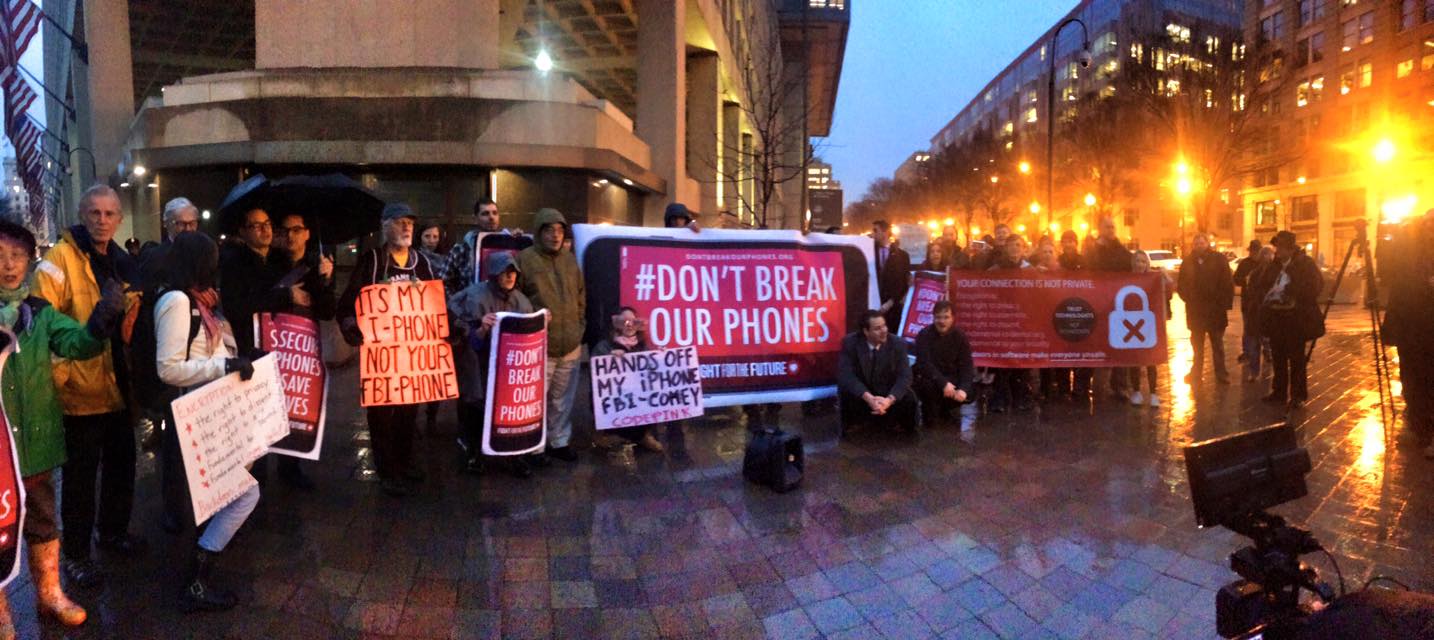
EDITORIAL: Third parties worm way into Apple devices
On Feb. 16, the Federal Bureau of Investigation (FBI) obtained a court order requesting Apple to assist in retrieving data from the phone of San Bernardino shooter Syed Rizwan Farook.
Even though the FBI is seeking to access only Farook’s iPhone, this action has, in turn, unlocked controversy surrounding privacy and cyber security.
The precedence this court case could set revolves around not only handing law enforcement a master key to open up the backdoor of any Apple device, but also the ramifications surely to follow in which unintended third parties gain an accessible entryway into other people’s stored data.
Because of this, organizations and individuals across the nation are rallying behind Apple in an attempt to prevent the FBI’s court-ordered request from going through.
In a letter to customers, Apple’s CEO Tim Cook stated the FBI wants the company to construct a version of iOS that would bypass the device’s security. While Cook insisted that Apple has complied with all valid subpoenas and search warrants, the CEO believes this new development would undeniably unlock a backdoor he does not want to open.
The Justice Department, on the other hand, states the FBI’s request is merely for the San Bernardino case and would not be the equivalent of leaving a master key lying around.
Regardless of how this legal battle turns out, the precedence being set will undoubtedly play a key role in future court case outcomes and government surveillance.
As the world delves deeper into the digital age, cyber security increasingly sprouts concerns following the hacking of electronic devices at varying degrees.
Attacks on electronic devices in recent weeks, via cyber terrorism, have increasingly formed an invisible cloud storing the worries of many worldwide. From the hacking of hospital computers in Los Angeles to the encryption of computer hard drives at a Houston university, ransomware is a growing trend in which data hijackers demand payment for restoring a device.
For example, in the last two weeks, hackers were able to encrypt the hard drives of eight University of Houston—Clear Lake computers. The cyber attackers were able to infect the majority of the hard drives, including any attached external drives, by baiting the users into opening an email with a virus-filled link or attachment. From there, the perpetrators demanded a ransom payment via credit card in order to send a key that would decrypt the hard drives. The university’s information security office strongly advised users against complying with the criminals. Meanwhile, the technical support team worked to restore the encrypted campus computers via data backups.
Also in February, a similar case took place in Los Angeles when the Hollywood Presbyterian Medical Center saw its computers hacked. After receiving a ransom request, the hospital felt obligated to transfer $17,000 into the hackers’ bank account in order to quickly regain control of its computer systems and streamline patient care. Although all medical files were restored, information security officers warn the risk of complying with cyber criminals is high as the reliability of receiving a code that isn’t just another piece of the virus is unpredictable.
While neither case directly relates to the current battle between Apple and the FBI, both share a commonality that calls into question how someone’s personal data, stored on any electronic device, could be at risk of exposure.
Just short of comparing apples to oranges, the current controversy has sparked a debate as to whether or not this legal matter will eventually set the stage for a technological downfall.
To some, the operating system Apple needs to create, dubbed “FBiOS,” would be the backdoor to Farook’s iPhone and could later be beneficial in legal cases involving criminals. Some feel Apple’s resistance of complying with the court order stems from a marketing strategy.
For others, the fear of a potential backdoor is a monumental threat to personal and, by extension, national security. If Apple invents the “FBiOS,” even for one phone, it could potentially lead to a third party accessing and abusing the system.
Fight For The Future, a non-profit organization dedicated to ensuring freedom and creativity on the Web, hosted rallies outside of Apple stores nationwide Feb. 23 in an effort to raise awareness on the issue. Making use of “#DontBreakOurPhones” on social media, the rally participants held up signs declaring their allegiance with Apple.
The reality is that technology is a never ceasing field in which new creations continue to test the freedoms granted under the Constitution.
Personal data, even though locked away behind a passcode or thumbprint scan, is constantly at risk of cyber attacks. However, allowing the creation of a new operating system that would effectively bypass all security without proper subpoenas and search warrants is a dangerous notion.
Equally frightening is the potential for even more catastrophic cyber terrorism, which seems inevitable once an “FBiOS” is formulated. At that point, just like any other software or invention, the operating system would be at risk of being copied.
In the event “FBiOS” is replicated and falls into the wrong hands, an unwelcomed third party could easily worm its way into any Apple device. Thus, resulting in the mass loss of personal data and privacy.
While complying with any form of law enforcement and government is integral to a civilized society, law enforcers must be held accountable for following legal proceedings in order to ensure and protect the personal liberties of its citizenship. The personal data and privacy of millions should not be put at an unnecessary risk for the sake of one deceased terrorist. Although the act of terrorism that occurred in San Bernardino is profoundly tragic, demanding the invention of a backdoor guised as a new operating system will inevitably lead to the downward spiral of the freedoms granted to all Americans through the Constitution.
